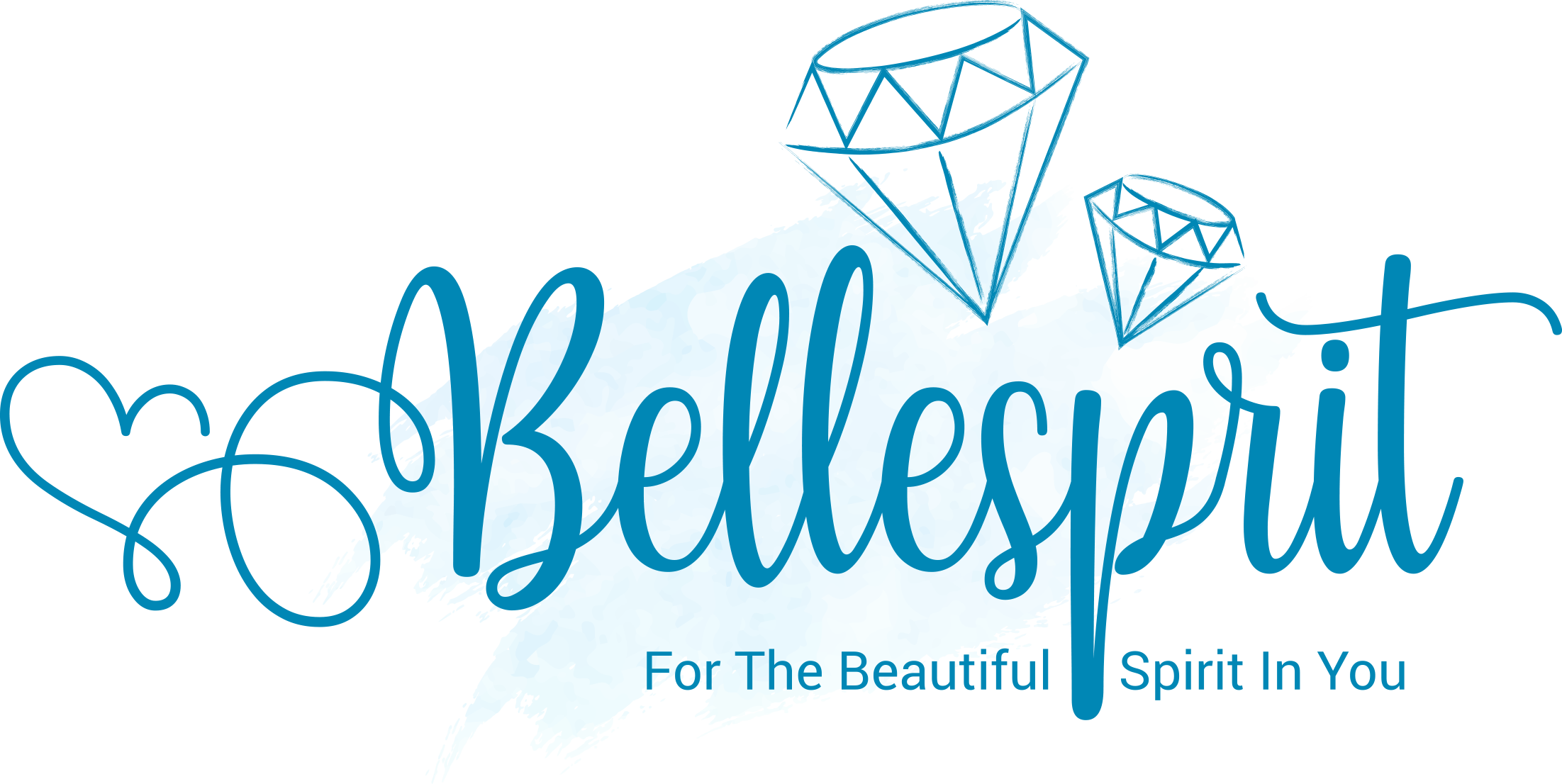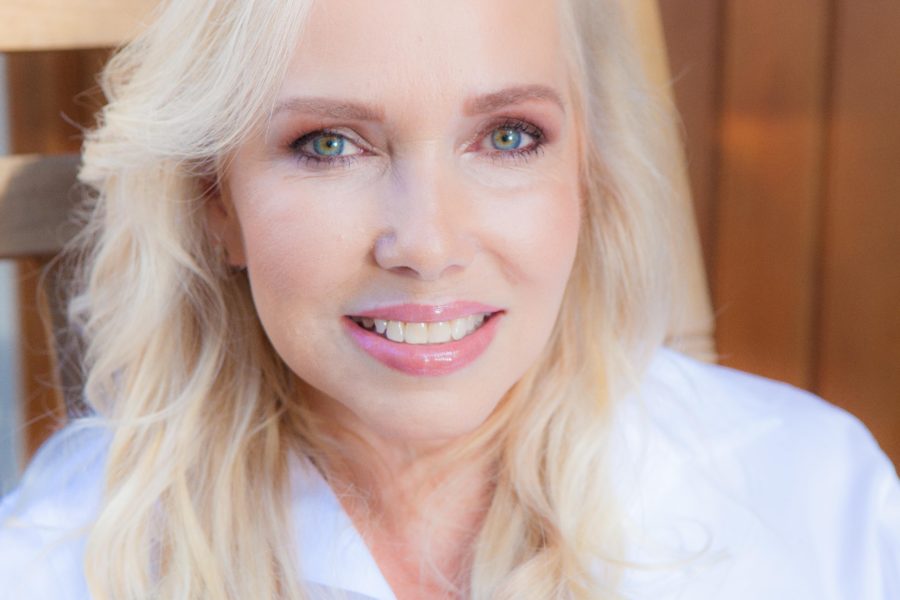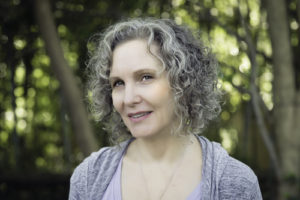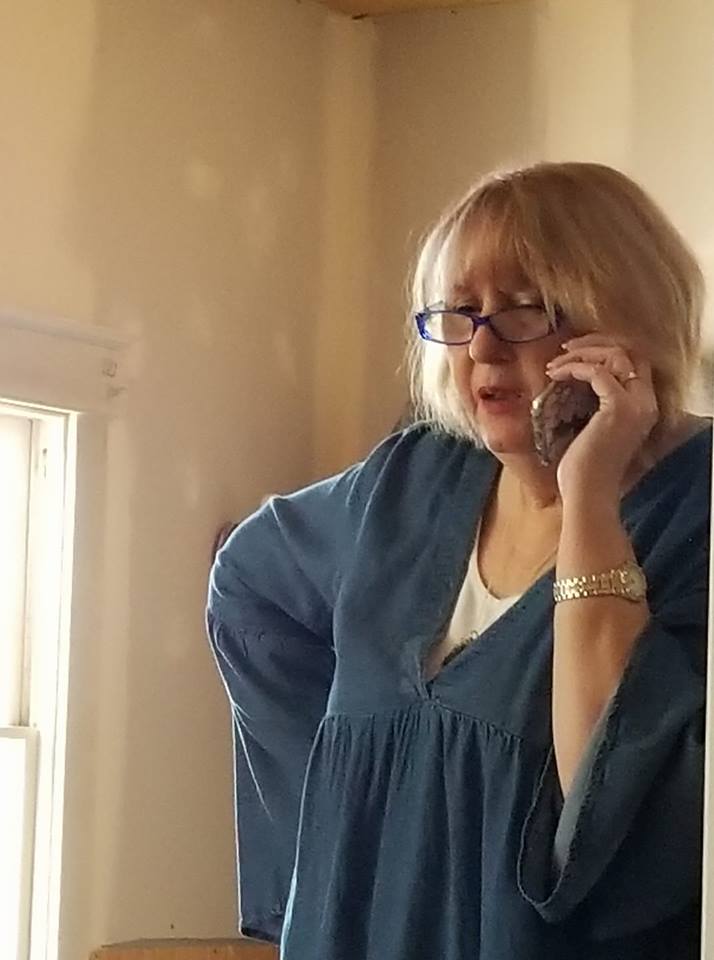Gail Trauco is an amazing Grief Therapist providing hope, healing and love for those who are mourning a loss.
By Christina Nelson
It doesn’t have to be a loss through the passing of a loved one, it can be through a divorce, job loss, the break-up of a relationship; there are many forms of loss and Gail addresses them all with her southern charm and spiritual abilities.
Christina: You provide so many valuable services and have trained under great names such as Lisa Williams, Doreen Virtue and John Holland. What is your background that started you on this path?
Gail: I grew up in Soggy Bottom, North Carolina. I lived with my grandparents on a farm and grew everything we ate. This was back in the day when we had our extended family around. My grandfather’s sisters and brothers all lived in the community I grew up in. It was that wonderful extended family network that I’d see at church and on the front porch every afternoon after school or out working in their fields and in the gardens. Everybody worked together.
We didn’t have money for tutors or private education, I went to a public school. I was always told by all my family members to study hard and make good grades. I worked really hard in high school and got good grades. I landed a scholarship to go to college. I found out very quickly that a college scholarship does not provide you with all the money it takes to provide once you leave home. So I worked three jobs through school. I was a janitor and I met a pair of gay brothers that owned a store in Chapel Hill, NC called A Southern Season. I worked in their store and I was also their housekeeper. That was my first exposure to the LGBT community. It was with a lot of helping hands that I was able to pursue a higher education.
I was even a candy striper when I was in high school. I’ve always been drawn to hospitals. I think I was 15 when I first became a hospital volunteer/candy striper. That was like going home when I would walk in every Friday night. I worked in the emergency room helping the secretary at the front desk getting patients checked in, that kind of thing. I was around radiologists and that was my first experience in a hospital. I went on and got my education in the health care profession. It’s always been about helping people. I was always taking care of my brothers and sisters as I was growing up because I’m the oldest. It’s always been that helping energy that was ingrained in me that I think has propelled me to do the work that I do today.
C: Absolutely, I know it did. I know it had something to do with your intuition as well. You definitely have a gift of being a Psychic Medium. I know your gifts. I know you personally. And that works with you in your work as a health care provider.
G: I do not advertise this, but many people will call me when someone is in ICU, when they are on ventilators and the patient is heavily sedated – a patient who is critical care and they could either live or pass away dependent on the outcome. Many times I am able to connect with that spirit because when someone is heavily sedated in an ICU they are in and out of their body. That soul, that spirit, is crossing back and forth to the other side. And the more time they spend in that white light out of their body, the more they know there is complete love on the other side.
Many times I am communicating directly with that spirit… “Your family really wants you to stay, are you sure you’re ready to go? Do you have any unresolved issues here that you need to take care of?”
This is certainly not saying you can influence the outcome of someone who is very sick, and families can also help with the outcome. I counsel them and work with them to talk to the patient when they go visit them because the subconscious mind is always awake and it is always receiving information. I ask the families to make sure their conversations are always very positive when they are at their bedside.
Turn off the TV in that hospital room. If someone is staying with the patient, they should not have the television on. They need to be playing very light music. Limit visitors in the room, if people have very heavy energy, they need to limit that time at the bedside. This becomes very a spiritual spot for that family, as well as the person who is quite sick. Families can talk to the person and set a goal, “when you’re out of here for your birthday, we’ll go visit some friends you haven’t seen in a long time.” Setting goals with someone who is in that limbo phase in illness gives the families who are still here and going through this process, and the patient, a goal. Certainly their Higher Self and God and their soul contract is going to determine the outcome, but many times you are able to assist in changing that outcome. Maybe they come back, many of them do, Chris.
I’ve got two specific people I’m thinking about now in the very recent week. One of them was discharged from the hospital and went home. Another patient was moved from the intensive care unit to another floor after working with both of these families using this particular technique. It certainly gives God all the credit for the miracles and healing and for these families being open to receiving that information from God and the angels, and for that spirit, the patient, for doing their soul work because it is their ultimate decision. I don’t know of another practitioner that does that.
C: No, I’ve never even heard of anyone doing that in the medical field. Thank you for that.
G: I consider that part of my work with my therapy and as a medium. When somebody sends me a text message “My bother is in ICU” and within a second I send them back a message, “He’s got a hemoglobin disorder. I can’t talk to you right now, I’m in a clinic, but you can call me tomorrow.” Then they confirm what I had said and I know that Okay, I’ve got your spirit because that person has already connected to my aura as a medium.
C: Yes, that I do understand. That is amazing Gail. One of the services you offer is a grief mediator. Could you explain what that actually entails?
G: People call themselves varying things. I think therapist has a connotation in our society that is very negative. As a mediator, I get between you and your grief so I’m mediating – assisting you with determining where you are at in your grief cycle, where do you want to go, and how can you get to that healing phase.
C: And there are 7 cycles to grieving, correct?
G: Yes there are seven cycles of grief, the 5 traditional cycles identified by Elizabeth Kubler-Ross, M.D. in her book published in 1969 On Death and Dying and then two additional phases that I’ve identified and confirmed in my work since 2007. The first one is Fear and the last one is Forgetfulness – that’s the healing phase. Kubler-Ross’ work takes you through the Acceptance phase where you accept the loss. But you really want to go beyond that acceptance and be in that forgetfulness phase. By forgetfulness, I mean that you have learned to live with the loss or the trauma and that you are able to functionally and peacefully resume your daily activities, so I think forgetfulness is a very appropriate term for it.
C: Absolutely and I like that you brought that up. Let me ask you this – you have a book called Grief Monster which I have personally got to read. It’s a children’s book. It focuses on children. I love it. It’s going to be series of books. Can you tell us what the book is about, and afterward, can you tell us about the illustrator, because the illustrator is amazing! Also tell us where we can purchase this book or series of books.
 G: Emma Meets the Grief Monster is a series of 8 children’s books. It is the first illustrated children’s book series that deals with grief, loss, and divorce. I chose divorce because I am a child of a divorced family and my kids have lived through divorce. North American divorce rates are greater than 50%. So that was the particular scenario that I chose. Emma goes from having a loving caring whole family with two parents living in a household. As the book goes, each book is dedicated to one of the seven phases of grief. The second one in the series is Emma Faces Fear. That’s already on the market. The first book introduces the grief monster. I have a third book that will be out in about three weeks. Each one spends an entire book talking about and going through Emma’s life. Emma is showing you how she’s living with and handling well, or not handling well, each stage of grief. These particular books can be used for any type of grief or loss because the emotions are going to be the same. The age range is written for 7 to 10 year old’s, but I think anyone could benefit from reading the book, regardless of their age. The illustrator’s name is Mahfuja Selim and is from Bangladesh. She’s an award winning illustrator in India.
G: Emma Meets the Grief Monster is a series of 8 children’s books. It is the first illustrated children’s book series that deals with grief, loss, and divorce. I chose divorce because I am a child of a divorced family and my kids have lived through divorce. North American divorce rates are greater than 50%. So that was the particular scenario that I chose. Emma goes from having a loving caring whole family with two parents living in a household. As the book goes, each book is dedicated to one of the seven phases of grief. The second one in the series is Emma Faces Fear. That’s already on the market. The first book introduces the grief monster. I have a third book that will be out in about three weeks. Each one spends an entire book talking about and going through Emma’s life. Emma is showing you how she’s living with and handling well, or not handling well, each stage of grief. These particular books can be used for any type of grief or loss because the emotions are going to be the same. The age range is written for 7 to 10 year old’s, but I think anyone could benefit from reading the book, regardless of their age. The illustrator’s name is Mahfuja Selim and is from Bangladesh. She’s an award winning illustrator in India.
C: Well she definitely has the talent. You have the talent of writing and she has the talent of illustrating your message because the book just brings it all together; the illustration and story. I loved the book. I’m saving all the series, hopefully my granddaughter will never have to go through this but I want her to have this series because it’s so amazing.
Okay, so I want to ask you another question. And this one is the one I’ve been waiting for. I love the concept of you calling your sessions Front Porch Therapy. It’s perfect, and when you say front porch therapy, where does your mind automatically go?
G: You know, it goes back to my Aunt Nellie’s front porch in Wake Crossroads, North Carolina. The most fun minutes I have ever had in my life were sitting on my Aunt Nellie’s front porch.
C: And drinking sweet tea!
G: Of course we had sweet tea, they made it by the gallon in a big bucket every morning.
C: That’s right! So you had your glass, I can see it!
G: Don’t laugh, but I still drink out of empty mason jars.
I think my Aunt Nellie had 14 children. There were varying ages and many of them were adults. They were my second cousins as I was growing up; this was my great aunt. They had hogs and chickens, and mules and burrows, and cows; they had the whole gamut. They only lived about 2 miles from where we lived so we were there quite often.
C: I bet a lot of your memories come from that place.
G: A lot of my memories are from my Aunt Nellie’s front porch.
C: Is that front porch still there?
G: No, my grandparents’ home is gone. The home that my great-grandfather lived in still exists. But my Aunt Nellie’s home is gone.
C: Can you tell our readers where they can contact you for a session, or about grief?
G: All my sessions are scheduled through my website, www.frontporchtherapy.com. They can choose what session they are looking for. There is a form there for you to complete, the website is fully equipped e-commerce.
C: Now let’s get personal, tell me a little bit about your children.
G: I have three children. The oldest is 28 and he is a software engineer and is working on his Master’s degree. My twins will be 24 in September. One is a chef and the other one is finishing up his undergraduate and looking at medical school.
C: I don’t know your children personally, but I’ve talked with you about your children for many years and I feel like I know them. They are very successful, very well rounded, and very good looking kids. you’ve done an amazing job.
G: All three are all very different.
C: They are, but you have done an amazing job as a single mother. Kudos to you mom!
G: Thanks Chris, it has been a lot of work.
C: So what do you do as a slow down? You are so busy, Gail, you are on a plane almost 5-6 days a week. What do you do to just slow down for a while and just be you?
 G: I like to go to the barn and spend time with the horses and the burrows and anything else wandering around the barn, and spending time with my dogs. I really like watching reruns of the golden girls, too.
G: I like to go to the barn and spend time with the horses and the burrows and anything else wandering around the barn, and spending time with my dogs. I really like watching reruns of the golden girls, too.
C: That’s your front porch therapy, your decompression time. Good for you! I like to watch Little House on the Prairie. We all have our own little things.
G: I love the Hallmark channel! When I have an office day and I’m working from my home office, I play the Hallmark channel all day long.
C: I do to! I especially love their Christmas shows.
What motivates you to be such a dynamic, helping, caring, successful woman?
G: I really want to help people and reach the masses because grief impacted me at such an early age for so many different reasons. From being abandoned by your parents, or being so poor that you never fit in anywhere, not with clothing or any activities. I never even went to a football game until my freshman year of college. So if I can stop one other person from dealing with grief throughout their life like I did, and realize that everybody lives with loss and everybody has life traumas, that grief and loss are normal, that there is nothing wrong with you, then I will have done my job every day. I think that God gives us all a mission and He puts us on this earth for a reason. It’s when we accept that reason that we are here.
I have done 45 media shows nationwide over the last 12 months and I can reach more people with one television segment than I can by writing all the books in the world, even if I spend three minutes talking about grief. My hope is that I touch at least one person with everything that I do.
C: I personally know you have.
G: I’ve never even stopped to look in the mirror to see if I’m cute enough to go on TV. If this is what I have to do to get the message out, then this is what I do.
C: You are right, it’s not what you have to do but what you love to do. I know you do a lot of your front porch therapy on the main stream news. Talk a little about what you are doing on the news.
G: Creating an awareness and hopefully a national movement that grief is normal, not only associated with death, but with any loss in your life that throws you out of balance – when you pet passes away, when there is a divorce. financial struggles, losing a job, when your kids leave home – they go away to college and it is just mom and dad home, when you change friends, maybe when you go back to school to get a second degree, maybe it’s someone who is gay or lesbian and it is that moment when they say “this is who I am.” For me, I get a lot of slack because I am single and I elected not to get married again until my children are older. I just didn’t want to deal with a second parent. That was my choice and it has been the right choice.
C: You travel to different news stations to put out your message. Tell us about that.
 G: I fly nationwide. I’ve been on a number of top 10 markets. I’m nationally syndicated, NBC daytime (June) and other appearances scheduled coming up by the end of the year. I can even go on TV in Spanish. I’m completely bi-lingual.
G: I fly nationwide. I’ve been on a number of top 10 markets. I’m nationally syndicated, NBC daytime (June) and other appearances scheduled coming up by the end of the year. I can even go on TV in Spanish. I’m completely bi-lingual.
You know, everyone has a blue moment every day. So if you can identify when that moment steps in and say ‘okay this is a quick pick me up for me,’ maybe it’s to light a candle, maybe it’s to have flowers on your desk, turn on the music or pop a Hershey kiss in your mouth. I’m known at hospitals to always have a little bag in my pocket with at least 20 Hershey kisses in it. I am the person who will put that piece of chocolate in somebody’s hand (certainly not a patient who can’t have it). I’m the person they can always look to for chocolate. There is not very many calories in a Hershey kiss and you can see it light up people’s eyes. I even have people reach into my jacket pocket because they know it’s in there.
C: One last question to wrap it up. Do you have one last message to leave with everyone here today?
G: Grief is normal and that it is our most undiagnosed medical condition in America today. Most undiagnosed and misdiagnosed.
C: I totally have to agree with you.
G: It will impact every person that you know at some point, every year of their life. It may only be with a seasonal change. People don’t even know they have seasonal activated depressive disorder. The more informed you are, the better you are able to take control of your life so that you are able to live a fulfilled life.
C: You know, you are right. I love that you said that and it is perfect for the end of this interview because talking with you the past few years, I grieved when I didn’t know I was grieving. When I came out to my parents, I was grieving then. What I was going through was normal, and its grieving. I grieved a lot for my parents. Are they still alive; yes, but I was grieving…I never knew that.
G: Yes, and once you have that awakening, it’s like ‘wow that’s normal.’ You know there are support programs in most communities and most churches will have a grief-share. There are grief counselors that show up when there are school shootings. I have therapy dogs, and two horses that I use. It just depends on if somebody is on site, if they want to come out to middle Georgia, and I certainly encourage people to do that. I do two-day intensives with families – I either fly to where they are or they can fly here to Atlanta– and I will work with them for two 8-hour days. They are intense programs; you can get a lot done in two days face-to-face. We identify where you are and where you want to go, putting on your ugh slippers, I call them ugh slippers because once you slip on those comfortable slippers you realize it feels good and you acknowledge it’s okay to breathe.
It was like you, Chris, once you were able to grasp what was going on with you and your relationship with your parents…
C: I did… it sounds silly; I was able to put a label on it… I was grieving and it’s okay.
G: And its normal, it’s so normal. Hello, wave the normal flag around!
C: And that’s the message that you want everyone reading this article to know.
G: People will say ‘you’re going to grieve for 3 months, or you’ll grieve for 6 months,’ but there is no certain time limit for a grief cycle. If you find yourself in 6-12 months and you’re really not able to go to work, your grief may be evolved into a clinical depressive disorder and you should seek physician evaluation. You can generally get up and go to work. You may have some tearful moments in the day, you may lose a bit of sleep, but clinical depression is different. It is more that uncontrollable crying, appetite changes, constant insomnia, fatigue, it may be irritability beyond being snappy at somebody – it goes beyond that, it may be attacking a person you are in a relationship with. Those are good indicators that you may want to think about seeing a physician for an evaluation because it may have evolved into depression.
C: Absolutely, and depression is not fun.
G: Grief may also evolve into maybe post-traumatic stress Syndrome. That is why it is important that you are working with someone who knows when it’s time to get the family physician involved or maybe even a psychiatrist.
C: That’s what I did, I went to family counseling; it helped me through mine. They were able to pinpoint what was wrong.
G: Sometimes it may take 3 or 4 sessions if that’s the reason, but generally a medical doctor is able to diagnose their condition, they have the diagnostic tools with questionnaires and questions, they’re so good at helping patient’s diagnosis if they have the symptoms of a medical illness.
C: It was very helpful for me in my diagnosis. It was the grieving process that I was going through. It wasn’t a clinical depression, it was grieving. And, I think those are two different things.
G: They are two different things, but you will never see the word ‘grief’ as a diagnosis in a medical record. It’s always going to be referred to as depression, depressive disorder, anxiety, insomnia.
C: That’s so true! I had these MD’s that diagnosed me with depression and they wanted to give me anti-depression pills because they felt I was depressed. I didn’t feel like I was depressed but I would take the pills and it made me worse. That’s when I thought ‘something else is wrong with me. I’m not depressed.’ I somehow knew that it was grieving. I then went to a counselor who wasn’t shoving pills down my throat and they agreed with me that I was going through the process of the loss of my family.
G: It’s so important that people make sure that they are working with their physician and communicating to help that physician make good choices for what to prescribe during treatment for any medical illness.
C: Exactly! Don’t just shove Xanax down my throat, ‘no!’
G: You know what? The noisy patient is the patient that gets the best medical treatment because they’re going to listen to you. It’s like the squeaky wheel, so be the noisy patient… be the noisy patient!
People need to realize that the human body is the most expensive vehicle you will ever drive. So be the Mercedes that is being taken in for service. When you are paying that physician to evaluate your body… be the Mercedes. Be the noisy patient!
C: Tell us about your education that has led you to this field.
G: I have a Bachelor of Science in Nursing and I’m Oncologist Certified. And I have too many degrees in Counseling, I’m a Master Hypnotist, a Past Life Regressionist and I’ve probably got about 7 years’ worth of training in Counseling and those type of services. I’ve seen over 360,000 patients since I began.
C: No wonder you’re so busy! You barely have time for your horses!
G: Well, that’s over many, many years.
C: What is your final thought for our readers that you would like to share?
G: We’re seeing more violence today than I have ever seen in my lifetime. If I could encourage people to do anything it would be to be kinder to each other. Lady Gaga made a statement when she was on a panel with the Dali Lama and her words were just “Be kind to each other!” So in lieu of all the violence and the shootings, if people could be just a little bit nicer, maybe smile at somebody in the grocery store if they are looking forlorn. I think being kind to each other is going to bring the light through and allow that divine thread that connects us all together as humankind to maybe let God do His work a little bit better.
C: You’re right, and how simple is that! Just be kind to each other. That is such a powerful statement.
G: You know, last week I was in the Airport in NY and had a six-hour layover. So there was a group of us waiting in about six or seven chairs. I noticed this one lady needed to go to the restroom and I told her I would watch her luggage and for her to go ahead. It was amazing because I began to notice that one person after another was doing kind things for others. It was like a chain reaction. It was a really nice energy.
C: All it takes is a simple act of kindness. Such great words from both you and Lady Gaga. What great advice for us to follow!
It has truly been my pleasure to interview my dear friend Gail Trauco for the cover of our September issue. If you would like to learn more about her, be sure to check out her web site at www.frontporchtherapy.com.
About the Author:
 Christina Nelson is part of a lineage of psychic mediums At an early age, Christina began to realize that there was something different about the way she saw the world. Christina works closely with her spirit guide. It is her psychic abilities that set her apart from other paranormal investigators. She has made it her mission to track and exorcise all evil that dares to cross her path.
Christina Nelson is part of a lineage of psychic mediums At an early age, Christina began to realize that there was something different about the way she saw the world. Christina works closely with her spirit guide. It is her psychic abilities that set her apart from other paranormal investigators. She has made it her mission to track and exorcise all evil that dares to cross her path.






